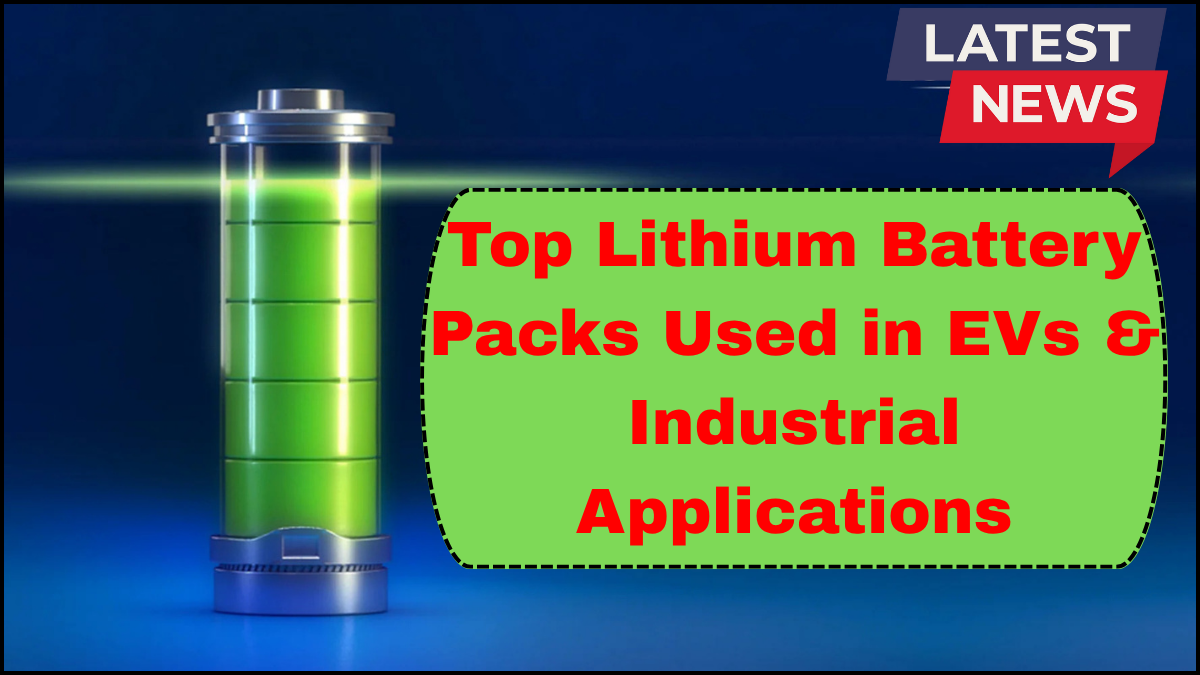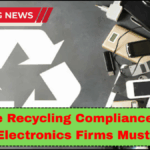Lithium battery packs have become the backbone of modern electric vehicles (EVs) and a growing number of industrial systems. Known for their high energy density, long lifecycle, and relatively low maintenance, these battery systems are crucial to advancing clean energy and efficient transportation. This article breaks down some of the most trusted lithium battery packs in use today across electric mobility and industrial operations.

What Are Lithium Battery Packs?
Lithium battery packs are rechargeable energy storage systems made primarily from lithium-ion or lithium iron phosphate (LiFePO4) cells. These packs are engineered to deliver consistent power, compact form factors, and superior efficiency compared to traditional lead-acid batteries. Their widespread adoption is mainly due to their adaptability in EV integration and demanding industrial setups.
Key Players and Leading Battery Packs
1. Tesla Battery Packs (Panasonic 2170 & 4680 Cells)
Tesla’s battery packs, built in collaboration with Panasonic, remain among the most advanced in the EV market. The 2170 cells power vehicles like the Model 3 and Model Y, offering a balance of energy density and cooling efficiency. The newer 4680 format promises even higher energy storage, reduced cost per kWh, and better performance in long-range EVs. These packs are also optimized for fast charging and deep-cycle use.
2. LG Energy Solution Pouch Cells
LG’s lithium battery packs are widely used in EVs manufactured by GM, Hyundai, and others. Their pouch cell format allows flexible packaging in tight spaces and offers high power output. These packs are known for their thermal management systems and long-term stability, making them suitable for both passenger EVs and heavy-duty electric trucks.
3. CATL Lithium Iron Phosphate (LFP) Packs
Contemporary Amperex Technology Co. Limited (CATL) leads globally in LFP battery production. LFP packs are known for their safety, long cycle life (up to 6,000 cycles), and affordability. CATL’s lithium battery packs are favored in budget EVs and industrial energy storage systems due to their stability and lower fire risk.
4. BYD Blade Battery
BYD revolutionized EV integration with its Blade Battery—an LFP-based pack with enhanced structural strength and heat resistance. Designed to withstand nail penetration and extreme pressure, the Blade Battery is both safe and efficient. It’s used in BYD’s own vehicles and is being tested by other automakers due to its innovative design.
5. Samsung SDI Prismatic Cells
Samsung SDI’s prismatic lithium battery packs are used by BMW, Rivian, and other automakers. These rigid, modular designs support high energy density and consistent power delivery. In industrial applications, Samsung packs are deployed in autonomous guided vehicles (AGVs) and energy backup systems.
6. A123 Systems Nanophosphate Packs
A123 specializes in lithium iron phosphate chemistry with a nanophosphate twist for higher power output. Their battery packs are widely used in industrial robotics, electric buses, and grid storage solutions. A123’s engineering ensures high safety margins and durability in harsh environments.
Lithium Battery Packs in Industrial Applications
In the industrial sector, lithium battery packs are replacing lead-acid systems in forklifts, telecom towers, uninterruptible power supplies (UPS), and solar energy storage. Their fast-charging capabilities, minimal maintenance needs, and compact designs make them ideal for 24/7 operations. Companies such as EnerSys, Blue Energy, and RELiON offer purpose-built lithium packs for these high-demand applications.
For example:
- Forklifts and AGVs: Lithium packs reduce downtime and extend operational hours.
- Renewable Energy Storage: Paired with solar arrays and wind turbines, they provide stable backup during grid failures.
- Telecom and Data Centers: Ensure clean, uninterrupted power without bulky cooling requirements.
The Future of Lithium Battery Pack Development
As demand increases for cleaner transportation and smarter industry, lithium battery packs are becoming more intelligent and integrated. Expect further innovations in solid-state battery tech, AI-powered battery management systems (BMS), and sustainable manufacturing practices. The intersection of lithium battery innovation and EV integration will continue to drive efficiency, range, and scalability.
FAQs
Q1: What is the difference between lithium-ion and lithium iron phosphate batteries?
Lithium-ion (Li-ion) batteries generally offer higher energy density, making them suitable for performance EVs. Lithium iron phosphate (LFP) batteries trade off some energy density for better thermal stability, longer cycle life, and safety—ideal for industrial applications and budget EVs.
Q2: Why are lithium battery packs preferred for EV integration?
They are lighter, more efficient, charge faster, and last longer than older technologies like lead-acid or nickel-cadmium. Their modular nature allows them to be tailored to different vehicle sizes and requirements.
Q3: How long do lithium battery packs last in industrial environments?
Depending on the chemistry and usage, lithium battery packs can last between 5 to 15 years, with up to 6,000 charge cycles in some LFP variants.
Q4: Are lithium battery packs safe?
Modern lithium battery packs are equipped with advanced BMS and cooling systems to mitigate risks. LFP-based packs are especially safe and resistant to thermal runaway.
Q5: Can EV battery packs be reused or recycled?
Yes. Many companies now repurpose EV battery packs for secondary storage use in homes and businesses. Recycling technologies are also improving to recover valuable materials like lithium, nickel, and cobalt.
click here to learn more



